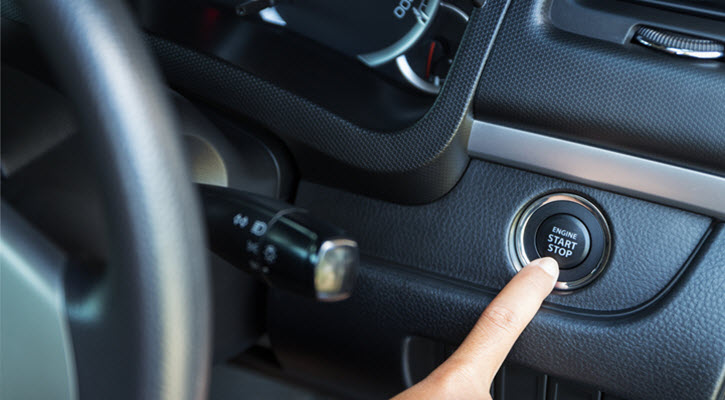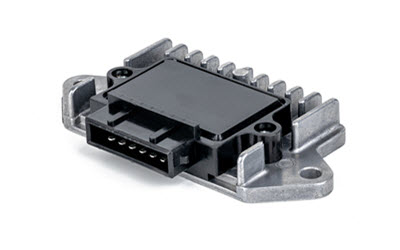
Why Delaying Your BMW’s Ignition Module Replacement is Risky
12 Jul, 25
The ignition module inside of a BMW is a crucial component of the ignition system. It has many roles and functions necessary for your vehicle to start. It uses sensors to gather data needed to produce the spark to ignite the air-fuel mixture in the cylinders. To properly maintain the ignition module, you should focus on getting it inspected regularly and have parts like ignition coils and spark plugs replaced.
By doing this, you help ensure that your BMW is kept up correctly and minimize the stress put on the ignition module so it doesn’t fail. At Santa Barbara Autowerks, we recommend looking out for signs like heat exposure, electrical problems, stalling, difficulty starting, reduced fuel efficiency, and a shaky engine. These signs usually indicate that the ignition module is failing.
The ignition module can malfunction or fail for various reasons such as heat and thermal stress, oil leaks, electrical overload, moisture and contamination, faulty spark plugs, water damage, and general wear and tear. We suggest getting your ignition module checked out as soon as possible if you can.
The Ignition System: How the Ignition Module Functions in the System
Our team understands that bringing your BMW in to replace the ignition module may seem like a chore. However, the module is an important part of the ignition system and plays a big role in starting your vehicle. Below are the steps for how the ignition module works and what functions it performs within the ignition system.
- Role in the Ignition System: As a critical component of the BMW’s ignition system, the ignition module generates the high-voltage spark that ignites the fuel-air mixture inside the cylinders.
- Intermediary Function: The module is the bridge that connects the ignition coil and ignition switch. The coil is responsible for creating a high-voltage spark, and the switch is where the vehicle’s key is turned.
- Timing Control: For optimal combustion and engine performance, the ignition module will determine the exact timing needed for the spark to occur.
- Sensor Inputs: Signals are received from multiple sensors, such as the camshaft position sensor and the crankshaft position sensor, which provide information about the engine’s position and speed.
- Signal to Ignition Coil: Depending on what the sensor data states, the module will calculate the best timing for generating a spark. The signal will then be sent to the ignition coil to create the high-voltage spark.
- Modern Systems: Newer BMW models have a more modern ignition system now that is coil-on-plug. The ignition module commands the operation of each individual coil. This is to ensure efficient and exact spark delivery to all of the cylinders.
What Causes the Ignition Module in a BMW to Fail?
Our experts will use factory-grade diagnostic tools and equipment to see which of the following issues may be the cause of your BMW’s faulty ignition module.
- Heat and Thermal Stress: The ignition module is located near the engine, and this means it can be exposed to extreme temperatures. This can cause overheating, damage internal circuitry, or weaken solder joints.
- Oil leaks: An oil leak could disrupt the connection of the spark plug and ignition coil, which prevents a spark and lowers conductivity.
- Electrical Overload: The ignition module can fail if there is an electrical overload. The module’s circuitry will be overwhelmed by voltage spikes or power surges.
- Moisture and Contamination: Due to faulty wiring or damaged seals, the ignition module could short-circuit or corrode if dirt, water, oil, or other substances infiltrate.
- Faulty spark plugs: The coil housing can be damaged and become very hot due to a faulty spark plug. The spark plug might not properly conduct electricity.
- Water damage: The connection between the spark plug and ignition coil can be short-circuited due to water damage.
- Wear and Tear: Just like any other component, ignition modules will degrade over time due to heat, high voltage, and general wear and tear.
Don’t Ignore Your Faulty Ignition Module—Get it Replaced & Skip the Risks
At Santa Barbara Autowerks, we highly recommend bringing your vehicle in if the ignition module is faulty or malfunctioning. A faulty ignition module can easily leave you stranded somewhere, and it can cause serious damage to the vehicle’s engine.
- Check engine light: The check engine light on your dashboard is usually triggered when the ignition module is faulty.
- Rough idling and misfires: Engine misfires and rough idling are caused by a faulty module. This is due to the fact that the spark plugs won’t fire correctly.
- Engine starting issues: With a failing ignition module, your vehicle may stall on you suddenly, or it could be hard to start the vehicle.
- Decreased power and acceleration: Decreased acceleration and power capabilities happen when your BMW has an ignition module that is malfunctioning.
- Potential for further damage: By ignoring replacing a failing ignition module, it can lead to some potentially severe engine issues due to excessive heat generation and only partial combustion.
At Santa Barbara Autowerks,  we specialize in German auto repair. With reliable and honest service, we have gained our client’s trust for over 40 years. We are a BMW dealership alternative, so we offer the same high-quality maintenance but at a lower cost. Bring your BMW in today and let our experts diagnose and replace the ignition module. We are proud to serve residents in Santa Barbara and the following areas:
we specialize in German auto repair. With reliable and honest service, we have gained our client’s trust for over 40 years. We are a BMW dealership alternative, so we offer the same high-quality maintenance but at a lower cost. Bring your BMW in today and let our experts diagnose and replace the ignition module. We are proud to serve residents in Santa Barbara and the following areas:
- Montecito, CA
- Goleta, CA
- Isla Vista, CA
- Carpinteria, CA
- Summerland, CA
Schedule an appointment online at https://sbautowerks.com/appointments/. You can also book an appointment by visiting the shop in Santa Barbara, calling us at 805-966-3200.




